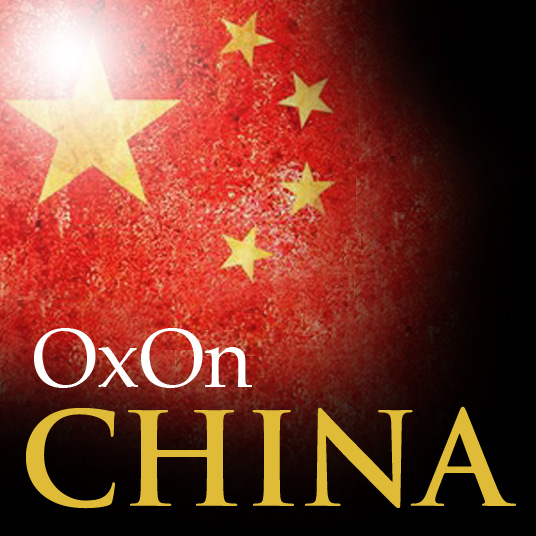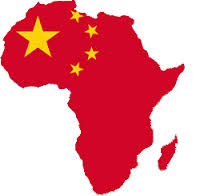
Debating China’s North Korea policy
Following North Korea’s third nuclear weapons test in February this year, much attention has been paid to debates within China over its troublesome neighbour, with some suggesting severing ties to the North altogether. Do these discussions reflect a fundamental shift underway in China’s North Korea policy? Not necessarily.

China in Africa: More about Africa than China
Over the past decade, Chinese priorities have shifted. Before, foreign aid, investment and technology were an import. Now, each is an export. The speed and scope of this change—as Chinese firms, diplomats, traders and cash ‘go out’ in ever-increasing numbers—has ignited controversy and hyperbole. These debates rage in advanced economies in response to China’s rising clout and the acquisitions of global brands by its rapidly internationalising firms.
They are also at fever pitch in the emerging world—where China has become an important new financier, development partner, and source of foreign direct investment (FDI). This is nowhere more visible than in Africa, where Chinese engagement has received far more attention than seems warranted at first glance. Chinese FDI flows to Africa make up only around two to four percent of the country’s total outward investment each year. Chinese FDI stock on the continent is a fraction of investments in Europe and the United States. However, these figures are growing rapidly, buttressed by an explosion in trade volumes—nearly doubling in the past four years alone to an estimated $200 billion in 2012—as well as deepening diplomatic engagement, development assistance, and accelerating migration between the two regions.

Economic relations between China and the EU show promise but more should be done
After ten years of the EU-China Comprehensive Strategic Partnership, has it made any difference? Alas, the partnership has mainly delivered more meetings. In 2006 the two sides opened negotiations for a Partnership and Cooperation Agreement which are still on-going. But there are reasons to be optimistic, even though a more robust economic partnership would require a major change of approach by both sides.
The political relationship between these two giant economies remains cool, while the economic one has been stress-tested by the post-2008 Eurozone crisis.

Mr Xi’s conflicting priorities: how should we read China’s reform roadmap?
Xi Jinping has taken over the helm of China’s state apparatus as well as the Party, but where the new leadership will take the country remains uncertain. Recent developments give us an indication. Recently, the Party presented a new plan to reduce inequality and has implemented an anti-corruption campaign. This has – amongst other things – hit luxury goods sellers and upmarket restaurants hard. Mr Xi has also made the ‘Chinese Dream’ into the leitmotif of his politics in order to ‘realize the great rejuvenation of the Chinese nation’. Other than this, identifying a direction has revolved around looking at the backgrounds, characters and objectives of the new leaders, in particular Mr Xi, and to a lesser extent, Li Keqiang, the Party secretary.
But focusing on the individual tells us little about their real ability to affect outcomes.

Kickstarting taxation
George Osborne is cracking down on tax avoidance. After a scandal in which it has emerged that some major multinationals have paid little or no UK corporate tax, the head of Britain’s Treasury has announced his mission “to turn concern over tax avoidance into a catalyst for change”. Osborne, formerly known as the City-boys’ puppet in power, has turned into the Great Enforcer, riding his “new agenda of transparency” into Ethiopia, Kenya, Ghana, Uganda and Tanzania.
But the domestic scandal over tax avoidance – the outraged bluster of Margaret Hodge’s mock trial of the Great Avoiders before the UK Public Accounts Committee; David Cameron’s barely-veiled threat at Davos to corporations who needed to “wake up and smell the coffee”; UK Uncut’s shop-floor protests – has done little damage to its targets. Even Starbucks, which felt compelled to donate £10 million to the Exchequer, apparently because it had listened to customers’ concerns, has ended up paying remarkably little in public contributions.

Oxon China
A collaborative project between Politics in Spires and the Oxford China Centre, this blog provides academic analysis on the economic, political and cultural transformations taking place in China.

Republicanism and tax justice
The republican commitment to the view that people can be at liberty only when they are secure – and equally secure – from the exercise of arbitrary power, has significant implications for the ‘domestic’ political economy of states. But it also bears on issues of what we may broadly call ‘transnational’ political economy. That is, that the decisions of actors beyond a democratic state may have important consequences for that state’s establishment, capability and even civic disposition.
For classical republicans, the root of popular sovereignty is not democratic rule but freedom from ‘alien’ rule. This is, indeed, how the republican concept of freedom emerged in ancient Greece – with the political prospect of rule by Persians motivating a focus on the value of being a free people who rule their own city. The most obvious threat here is being subject to the dominion of another people (direct imperial rule) but as republicanism widens its view of domination from the paradigmatic legal form of the master-slave relation, so ‘alien rule’ comes to encompass other possibilities such as political or economic dependency (indirect imperialism).

A new dawn for the Unions? Frances O’Grady and economic democracy
What is the future for trade unions in Britain? Last Friday, forty or fifty of us jammed into an Oxford college seminar room to hear that question answered. It was the annual Clement Attlee Memorial Lecture, at University College where the Prime Minister of the post-war settlement spent his student years. Less to remember the great man, we were there to hear Frances O’Grady, the new TUC General Secretary and the first woman to occupy this most pivotal office for the British labour movement.









